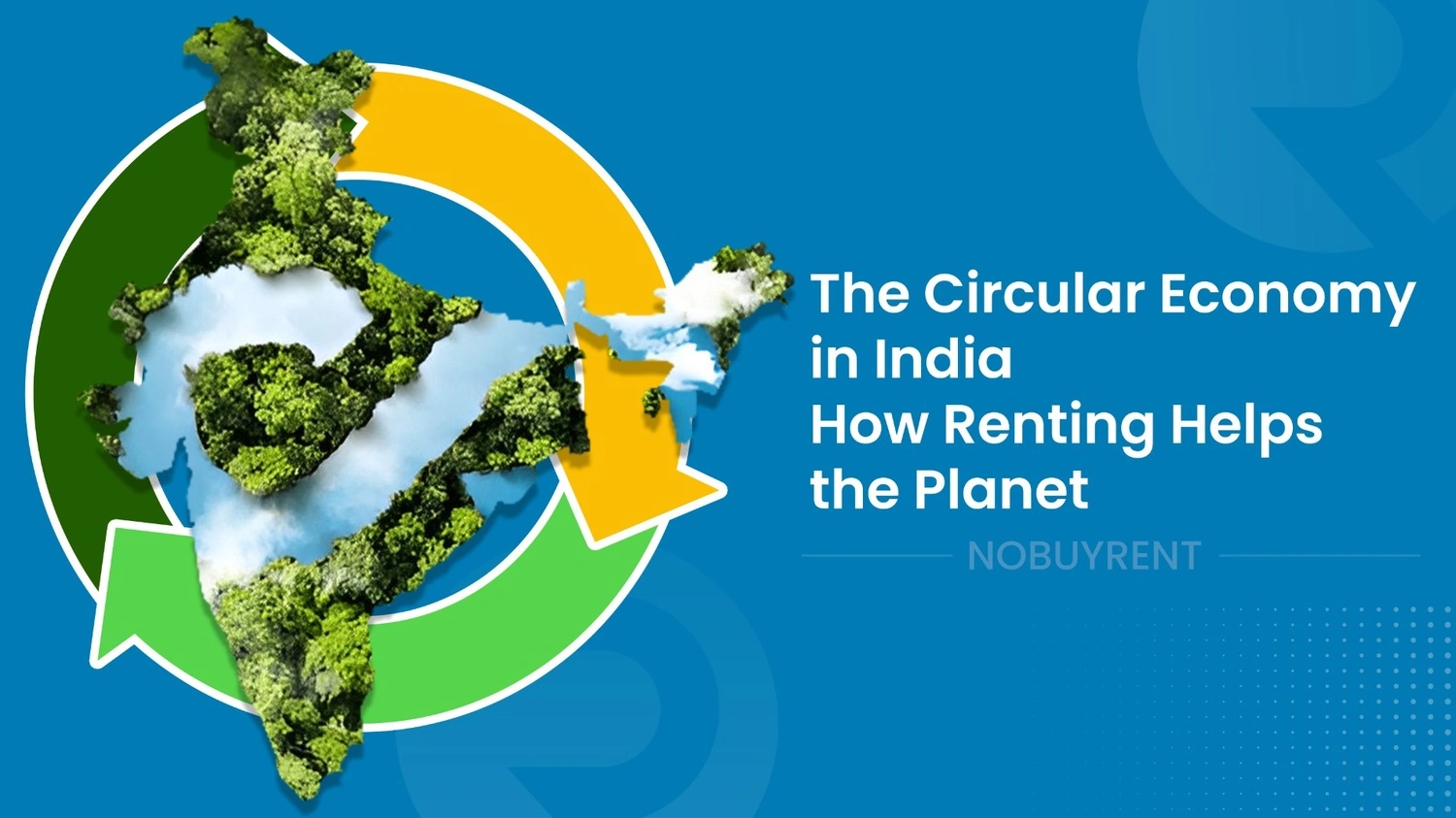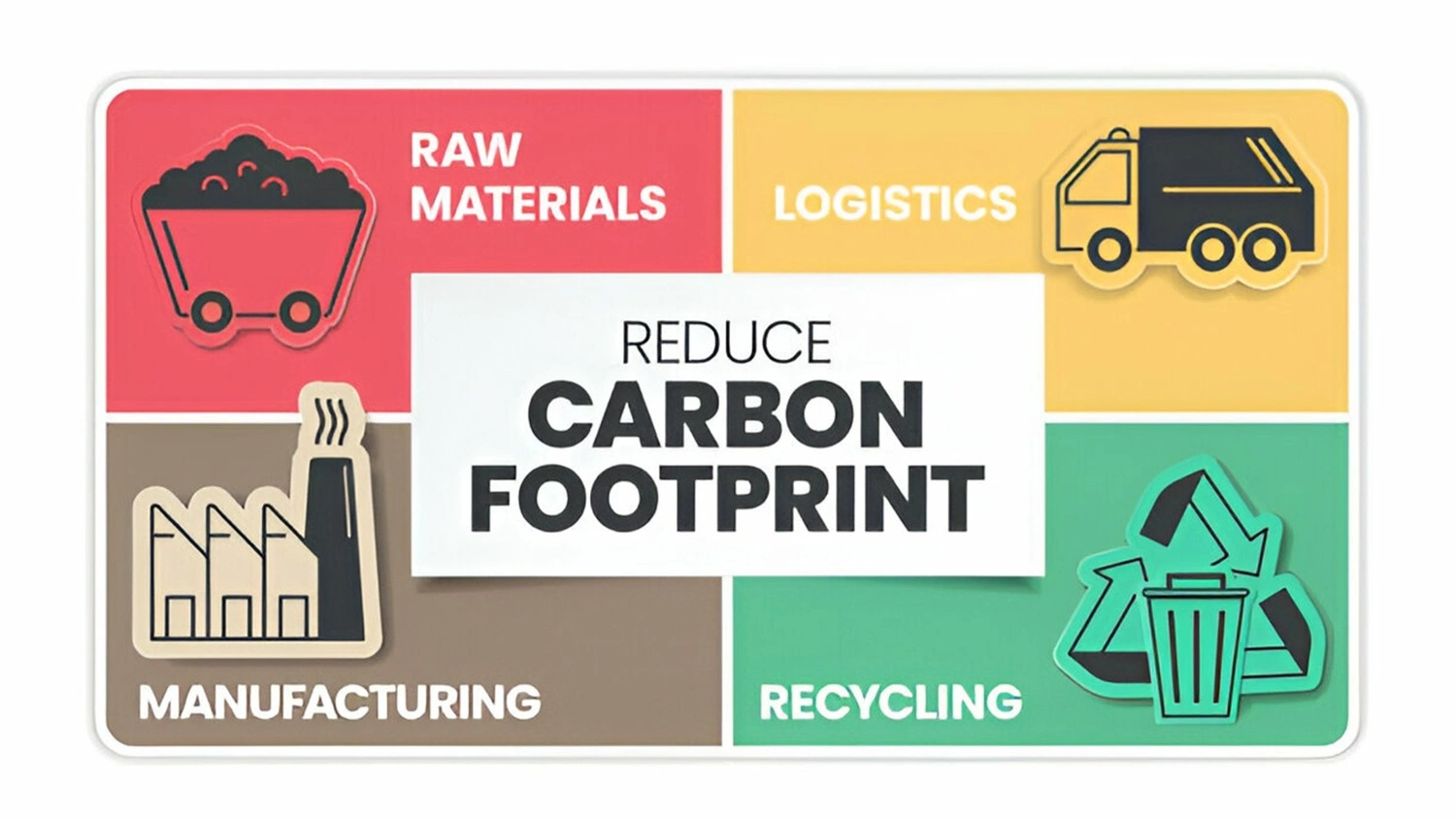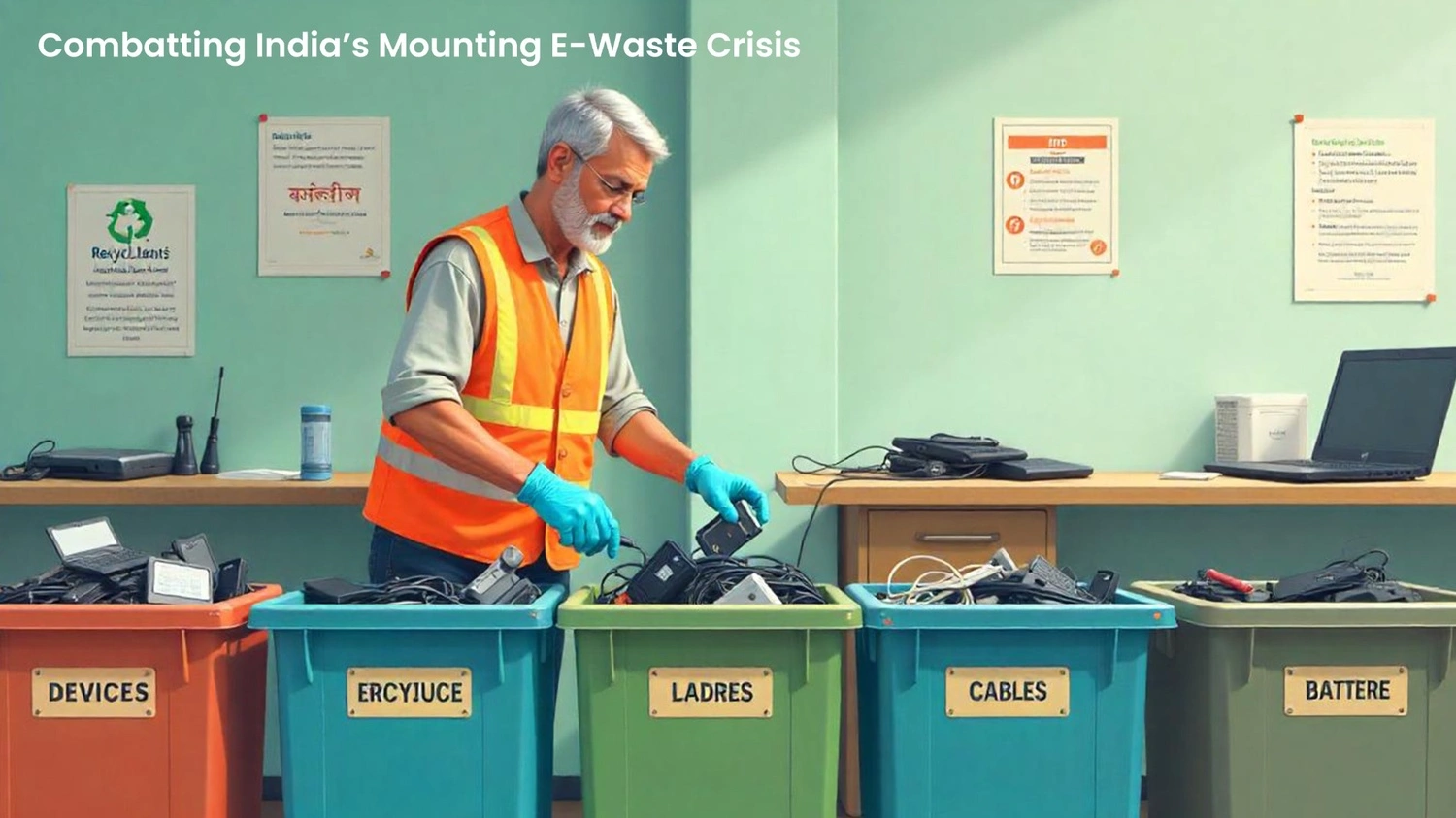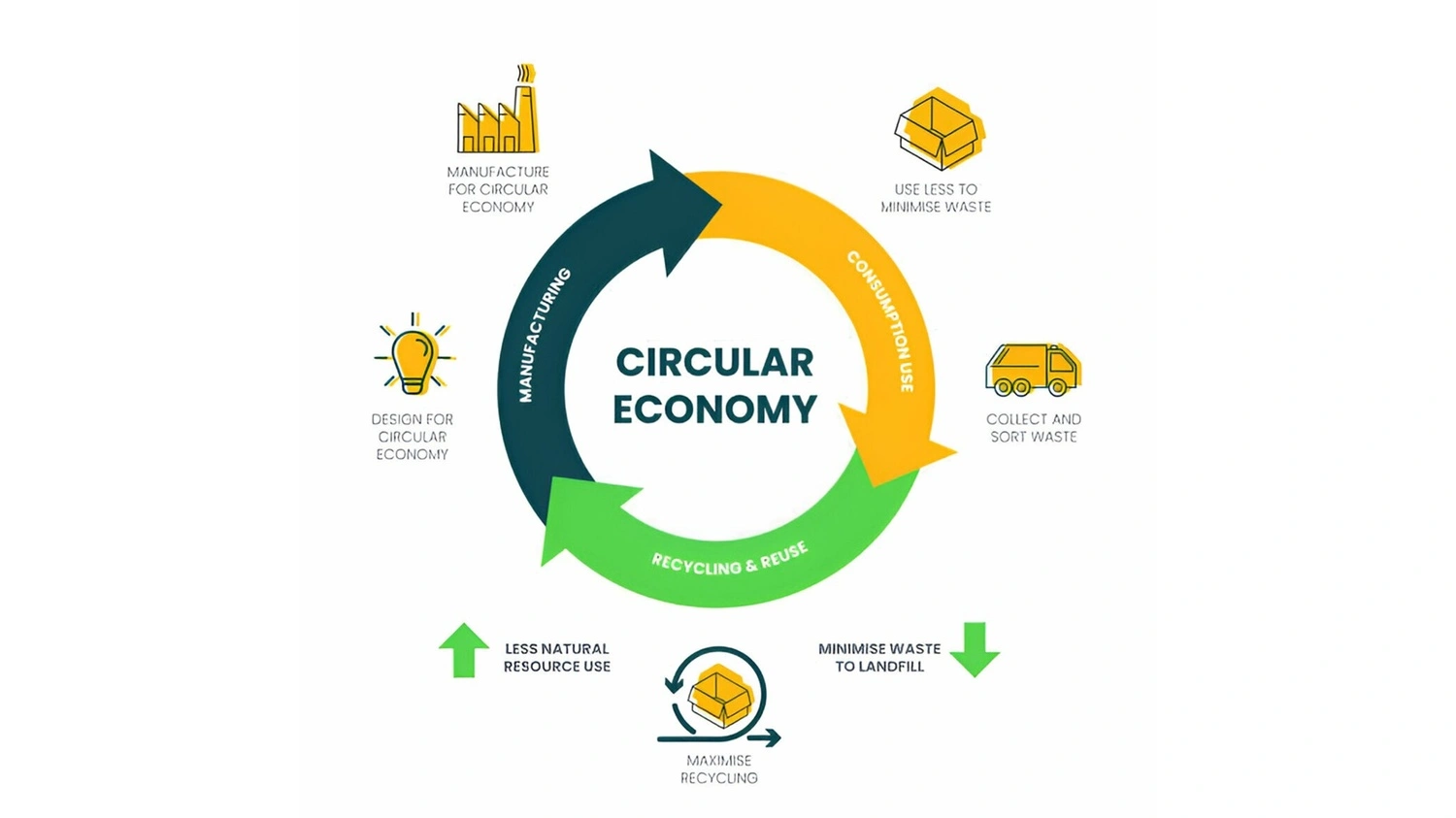
Connecting the Circular Economy in India
India is at the crossroads of sustainability. The world's third-largest producer of e-waste—over 2 million tonnes annually—India's historic take-make-dispose economy is revealing its constraints. A circular economy, which seeks to favor reuse, refurbish, and shared access, is a possibility. An influential ally in the transition? **Renting instead of owning.
Renting Reduces Resource Extraction & Manufacturing Impact
- Fewer calls for new items: renting products—taking electronics, appliances, equipment—decreases virgin material extraction demand. By keeping products in use for longer periods via reuse, it prevents emissions and resource extraction.
- Embedded emissions savings: Manufacturing new electronic devices accounts for up to 70% of their lifecycle carbon and material footprint. Extending the lifespan of existing assets via renting helps bypass those carbon and material costs.
Combatting India’s Mounting E-Waste Crisis
The e-waste crisis in India is alarming:
- Only 17% of global e-waste gets recycled formally—and India recycles less than 3 % of its over 3 Mt annual e-waste (ey.com).
- Over 90% is handled informally by kabadiwalas—often without safety or environmental controls (research.monash.edu).
How renting helps:
- Encourages circular flows—products are returned, inspected, repaired, and relisted rather than dumped.
- Enables urban mining: components recovered are used again, lowering pressure on mining and reducing manufacturing emissions.
Minimizing Packaging & Single-Use Waste
Frequent ownership cycles drive excess packaging. Renting platforms optimize logistics—delivering and retrieving in reusable packaging, drastically reducing one-off packaging waste. This addresses rising single-use plastic and packaging concerns pervasive across consumer goods.
Lowering Carbon Footprint from Logistics & Disposal

While renting may involve delivery logistics, platforms can:
- Consolidate shipments,
- Optimize last-mile routes,
- Use electric vehicles
Thus mitigating the carbon emissions from broad supply chains and waste-haulage. In contrast, frequent individual purchases and disposal trips add up significantly.
Shifting Mindsets from Ownership to Access
A core benefit of renting is its power to reshape consumer behavior:
- Access vs ownership: People want experiences rather than things, making it interesting to rent electronics, appliances, and equipment..
- Cost-effective & sustainable: Especially for items used rarely, renting is economical and eco-friendly.
- Trust matters: Platforms like NobuyRent are revolutionary rental models in India, make sure convenience, quality, and transparency—helping mainstream the access mindset.
Data‑Driven Environmental and Economic Benefits

| Benefit | Statistic / Insight |
|---|---|
| Annual e-waste | 2–3 million tonnes in India (researchgate.net, vbn.aau.dk, research.monash.edu) |
| Formal e-waste recycling growth | From $56.8 M (2023) to projected $144 M by 2030 (@ 14.3 % CAGR |
| Global resource recovery | Up to $62 billion in recoverable materials lost annually |
| Low recycling rates | Only ~22 % of e-waste is formally collected and recycled globally |
Renting’s role:
- Keeps devices in active circulation, lowering disposal rates.
- Encourages producers to design longer-lasting, modular products—central to circularity.
- Decreases landfilled e-waste volume, curbing toxic exposure for hundreds of thousands—including 400–500 K child workers (en.wikipedia.org, linkedin post).
Supporting Infrastructure and Policy Innovations
India is boosting circular infrastructure:
- Delhi’s first e-waste eco-park: Will process 51,000 tonnes annually, generating over ₹350 cr and 1,000 green jobs in formal recycling (ceew.in).
- Solar micro-material recovery at Khan Market (Delhi): A community-driven e-waste collection and segregation hub (timesofindia.indiatimes.com).
- Yi Madurai drive: Promotes e-waste collection across neighborhoods—building circular habits (timesofindia.indiatimes.com).
Coupled with the 2016 Solid Waste Management Rules that integrate informal waste workers, these initiatives bolster the circular transition (en.wikipedia.org).
How Renting Platforms Amplify Circularity in India

- Optimized product lifecycle – Maintenance, upgrades, and cyclical use prolong yields.
- Reverse logistics – Streamlined returns for repairs, cleaning, and reuse.
- Consumer convenience – Ease of access builds trust and adoption for circular models.
- Data & traceability – Platforms can track usage patterns, support modular design, and feed repairs into the loop.
These attributes directly target India's challenges: low formal recycling, informal e-waste handling, and high disposal rates.
Take Action—Join the Movement
- Consumers: Consider renting electronics, furniture, appliances, even clothes. Start with trusted websites like NobuyRent.
- Businesses: Use product-as-a-service models and plan for adaptable repair and refurbishment.
- Policy-makers: Promote rental platforms, promote traceable reverse logistics, and invest in shared recycling facilities.
- Communities: Participate in local e-waste drives and support circular hubs.
Conclusion: Renting is Key to India’s Circular Future
Renting in India isn't just a convenience—it's a strategic driver for sustainability:
- Reduces resource extraction and manufacturing impacts
- Mitigates the e-waste crisis
- Lowers packaging and carbon footprint
- Cultivates a mindset shift toward access, not ownership
Anchored in real-world data and unfolding policy shifts, embracing renting can supercharge India’s circular economy. Platforms like NobuyRent are at the forefront—ushering in a new era of sustainable consumption.


